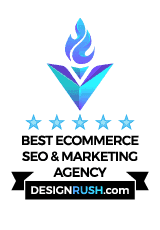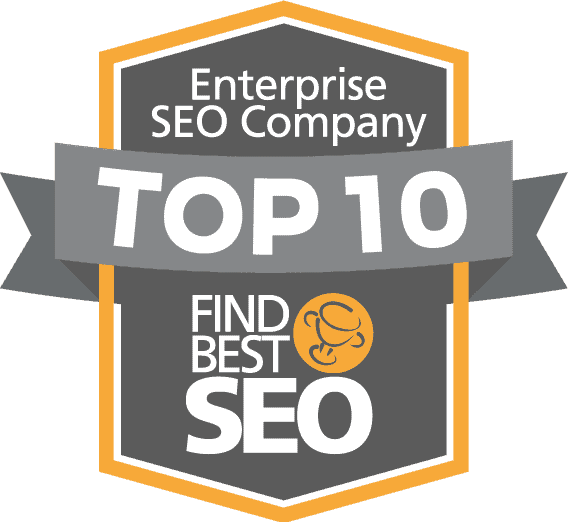You have finally done it. You have found your niche, bought your products, perfected your branding, and even created some social media buzz. Now, all that’s left is to upload your products on your Shopify platform or Shopify alternatives and watch the till overflow with revenue, right?? Well, not quite. You see if you don’t know how Shopify works and how to use SEO for Shopify stores you may be in for an unpleasant surprise.
Luckily, I have done the dirty work for you and put together the BEST Shopify SEO tips, ever!
Let’s get right to it, shall we?
First, let’s talk about how Shopify works.
The Details
Shopify is the most popular and efficient cloud-based shopping cart solution available. Here are just a few features that make this SaaS really stand out:
- Secure, reliable hosting
- Almost 100% uptime
- Free SSL certificate
- Affordable monthly payments
- 24/7 customer support
This means that Shopify is easy to use, affordable, and safe. They also offer gorgeous templates like these FREE ones here.
Quite an impressive list of pros. Now on the not-so-good side, many people find Shopify limited when it comes to functionality, meaning you have to purchase expensive add-ons. They also have a transaction fee still (unlike other eCommerce platforms). All that being said, Shopify is arguably the leader when it comes to creating your online store.
For the sake of this piece, let’s focus on our Shopify SEO tips so you can get the most out of your e-commerce site.
Tip 1: Page Rank
With an intuitive set-up, Shopify offers a very user-friendly site for you and your customers. One of its best features is that you can arrange your categories – this is not only convenient for you, but search engines LOVE this.
Shopify sites rank well when SEO is done well, across numerous search engines. This includes Google, Bing, Safari, Firefox, and Edge.
Here are some of the FREE SEO features I recommend to get your pages in tip-top shape:
- Meta Titles – you can edit your title tag for products, pages, and whole collections as well
- Meta Description – These are automatically generated so you will need to go into the admin and optimise these yourself
- Custom URLs – This is very important for page ranking and Shopify domain search
- Headings – these show search engines the structure of your content – use H1s, H2s, etc
- Image Alt Text – adding a manual script to your images will tell the Google algorithms its relevance
- Fast loading times
- 100% responsive
- URL Redirects – a handy, easy feature allows you to have your customer redirected to a new page
- Sitemap – generated automatically but its a limited feature
- Analytics – FREE Google tool to see how your site is doing
- Canonical Tags – great for on-page SEO – you get to choose which pages the search engine focused on
Now, if you are familiar with SEO, you may notice that keyword tools such as Google Search Console, social media integration, and search engine instructions are not included for free. This also goes for structural data, a major component of SEO as search engines love structural datA so they can match people with their relevant interests.
So for Tip 1, make sure you haven’t left out any of these on-page SEO techniques. For an eCommerce site, this especially means making sure your site is well structured. This way, your site is organised, and the search engines can crawl happily.
Be sure each of your images has a descriptive alt text. Remember people buy with their eyes first so only choose the best images and create original alt text for each one. One of the best tools for structuring your data is a schema. This language will tell SERPs exactly what your site is about like prices, ratings and reviews, and colours. This will increase your clicks and CTR as well.
Tip 2: Don’t Forget Your Content
Many online store owners rely on their design, products, and images to sell products, but the truth is we are social creatures and like to imitate what others are doing.
Using your Shopify blog is a great way of communicating with your customers and telling them how to use your products. For example, let’s say you are selling home decor. An image of a well-designed room is great, BUT a blog with relevant keywords and informative and engaging content will help your customers find what they are looking for and get inspired by the possibilities.
After all, in the world of SEO, Content will always be King. With this to be a great King, you must produce and maintain greatness itself. Your content must have the right keywords, be engaging, and solve a problem. This problem could range from giving information to giving entertainment to the reader.
If you are not much of a writer, don’t worry, there are Shopify SEO services that can help you with your content creation, SEO, and lead generation. Outsourcing your SEO to the experts will free up your time and keep up the ever-changing algorithms. That way, you can scale your eCommerce business and get the organic traffic you want and need.
A good SEO service will provide with the following:
- Ways to increase your profitability
- Create a roadmap so you can reach your revenue goals
- Massively increase leads
- Create more organic traffic
- Use the best SEO tools available
Tip 3: Tools to Be Used
How does Shopify store rank on Google? Easy by using the right tools. These tools will support your site to research high priority keywords, like Moz’s Keyword Explorer.
I also like Ahrefs to take a productive peek at the competition. You can use the “content gap” feature to see why and how your competitors are ranking while you are not.
Long-tail keywords are the best for SEO, so check out MergeWords which automatically generate many different keywords. For a thorough look at what your site needs its a good idea to consider a FREE SEO audit.
Tip 4: Get Good Backlinks
If you are thinking about opening an eCommerce website on Shopify, ask yourself, how does your Shopify store ranks on Google. Ranking on Google depends heavily on the quality of your backlinks as this enforces credibility and authority.
To get great backlinks, follow these helpful steps:
- Create comprehensive Skyscraper content
- Get on Quora
- Create Quizzes
- Infographics
- Blog posts
Each of these is a great way to rank your Shopify store higher on Google. But, as you can see, it is a lot of work. So consider outsourcing it to SEO experts who can bring you a higher domain and page ranking, content that drives traffic and gets you loads of high-quality backlinks.
Tip 5: Pay Attention to Your Pages
Now, to be found, your sitemap must be submitted to search engines for your pages to be properly crawled and indexed. Shopify will automatically create a sitemap.xml for your website. This file will contain all information on your products, listings, descriptions, links, pages, etc. As a note, Google does not guarantee any time frame for crawling a site, which points to the huge importance of getting the technical and on-page SEO right the first time.
Once set, the sitemap can be submitted to Google Search Console to help trigger the site being crawled.
Some pages you may want to keep private as well. This means draft pages or ones in progress in some other form. If a page is not ready to be crawled or indexed, you must be sure it is hidden from search engines. Robots.txt files block pages and content from search engines that may hinder your SEO effectiveness.
Things like this may include blocking a shopping cart page, so that prospective customers find product pages first rather than just the checkout page.
For pages that are not automatically included in the robots.txt files, you will have to do some light coding work in headers of pages you want to be hidden, so they are coded to no be crawled by search engines. This could include certain search templates or full pages.
Wrap Up
As you can see, Shopify definitely has quite a lot of potential when it comes to ranking and SEO. Use these tips and tricks to optimize your site or consider outsourcing to save your office time and money.








